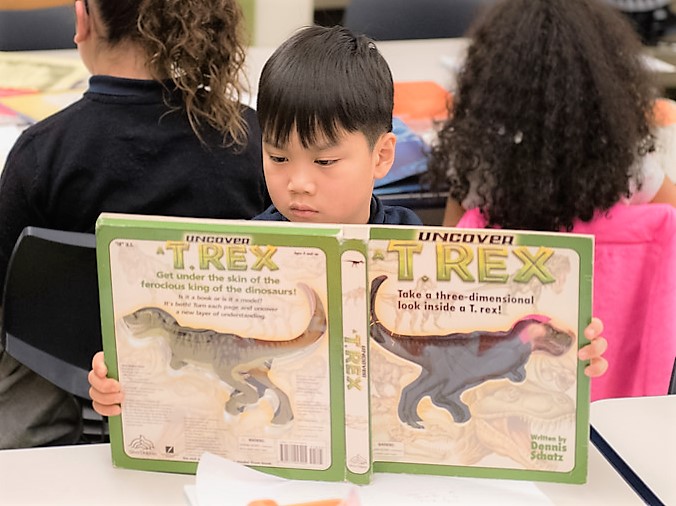5 Ways to Combat Summer Learning Loss
 By Sarah Riley, Education Pioneer Fellow
By Sarah Riley, Education Pioneer Fellow
Summer is a time for sun, fun and relaxation, but it’s also a time when many of the academic and behavioral gains that students make throughout the year are lost. Especially for students growing up in low-income communities. This loss of skills is know as summer learning loss or the “summer slide.”
On average, children from low-income families lose nearly three months of grade-level equivalency during the summer, compared to only one month lost by middle-income children. By the end of fifth grade, low-income children fall more than two years behind their more affluent peers in reading and verbal achievement and one-and-a-half years behind in math. These early setbacks can have long term repercussions. Children who fall behind in elementary school often end up in in lower academic tracks in high school, where they have fewer opportunities to acquire the skills they need to graduate and enroll in a four-year college.
The good news is that summer learning loss is not inevitable. Summer learning opportunities are everywhere, and the sooner we start, the bigger the impact. Summer enrichment can mitigate learning loss and even lead to academic gains.
Here are a few ways that you and your family can combat the summer slide:
Visit your local library
The greater exposure children have to books, the more likely they are to read. Take the whole family to your local library and take turns reading to one another. Keep children engaged by asking questions about the story, reviewing difficult words and having your children summarize the story to check for understanding. Many schools provide summer reading lists, which are a great place to start. For other options, check the American Library Association’s summer reading lists. They’re organized by grade levels and meant for preschoolers through eighth-graders. High school students can pick from Fast Web’s summer reading list. If your child isn’t enthusiastic about reading, select books that speak to his/her interests. Or, if you have a child who responds to monetary incentives, TD Bank offers $10 for kindergarten through fifth-graders who read at least 10 books over the summer.
Go on a field trip
Field trips to museums, parks and historical sites are culturally enriching and stimulate curiosity. After the trip, encourage your child to continue engaging with aspects of the trip that interested him/her the most. Field trips can be pricey, but luckily, the National Summer Learning Association has an interactive map (scroll down) with free summer programs and events. Can’t leave home? Try a virtual field trip. Scholastic Global Trek allows children to explore different countries, keep a travel journal and read Q&As created by children living all over the world.
Cook with your children
Not only is cooking a bonding activity, it’s also a great opportunity to teach basic math and develop a curious palate. Something as simple as counting ingredients or using measuring cups can reinforce math skills. Encourage your children to try new ingredients and describe how they taste. Talk about which foods they liked or didn’t like and why. For recipe ideas, take a look at the Food Network’s list of healthy recipes families can make together.
Host a family game night
Board games are a great way to spend family time, practice reading and math concepts AND build critical skills for learning such as resilience, social awareness and stress management. (For a better understanding of which skills and mindsets are necessary to learn and engage in school, check out Turnaround for Children’s Building Blocks for Learning framework). Looking for board game ideas? Learning Lift Off has a great list of educational board games, organized by grade levels. Education.com offers free, printable board games.
Establish chores with a purpose
Research shows that performing household chores develops responsibility and self-reliance in children. It’s not surprising then that children who began chores at an early age were more likely to have good relationships with friends and family, achieve academic and early career success and be more self-sufficient. Your child’s guidance counselor will likely have ideas for age-appropriate chores. You can also check out this fact sheet, created by the Center for Early Childhood Education, which has advice about choosing the right chores for your child’s age and level of ability.
Preventing summer slide can seem daunting, but it doesn’t have to be. Most summer activities can easily become learning experiences.
National Summer Learning Day is July 14, 2016. What other strategies have you used to keep children engaged and learning over the summer? Tweet at @Turnaround #The180 or comment on our Facebook page.

Share This Story